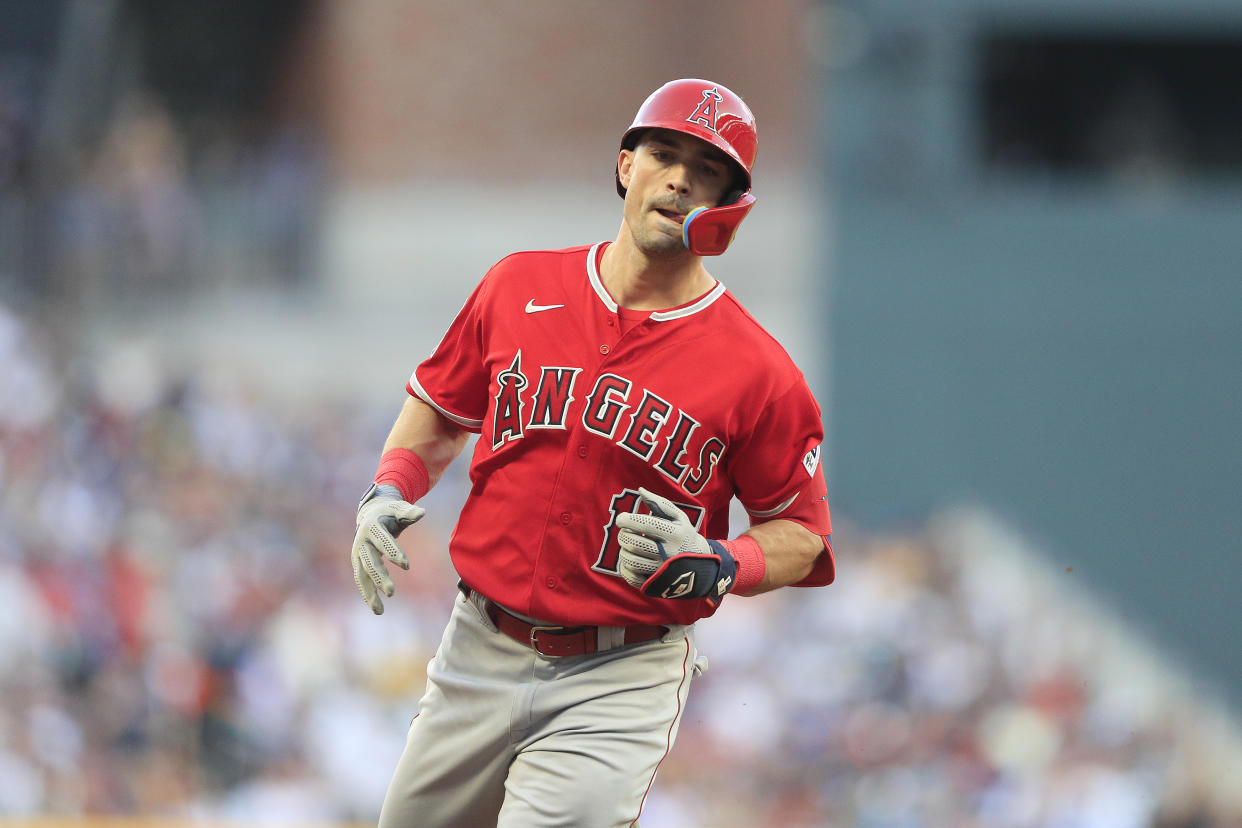Angels' mass waiving of players fails to get team under luxury tax threshold after Randal Grichuk goes unclaimed
If the Los Angeles Angels waived five players as a plan to get under the MLB luxury tax threshold, it fell one Randal Grichuk short.
After waiving Grichuk, Lucas Giolito, Matt Moore, Reynaldo López and Hunter Renfroe on Tuesday, the Angels' payroll still sits above the $233 million line that separates MLB's big spenders from the rest, according to Jeff Fletcher of the Orange County Register.
The team would've landed below that mark if every player it dropped had been picked up from waivers by MLB's 29 other teams. When a team wins a waiver claim on a player — as the Cleveland Guardians did with Giolito, Moore and López and the Cincinnati Reds did with Renfroe — it agrees to take on that player's contract for the rest of the season, taking the original team off the hook. When the player goes unclaimed, however, he either hits free agency or goes down to the minors, with the team still owing him what's left on his contract.
The Angels owed their quintet of waived players a total of roughly $7 million for the last month of the season. They no longer owe that to Giolito, Moore, López and Renfroe, but because Grichuk — who is making only $1.7 million this season — went unclaimed, they didn't lose enough salary to avoid the luxury tax.
That development continues an incredibly rough season for the Angels, whose record sat at 64-70 entering Friday. The team has lost the pitching talents of Shohei Ohtani, fallen flat on its face after buying at the trade deadline and might not see Mike Trout again this season. Waiving those five players was an attempt at some financial reprieve, but it's now facing a curious consequence of remaining a luxury-tax team.
Why would the Angels care about getting under the luxury-tax threshold?
There are basically three reasons the Angels would care about the luxury tax but only one that figures to be harmful.
The first and most obvious is the tax itself, but the actual payment figures to be negligible by MLB standards. First-time taxpayers, which the Angels would be, have to pay 20% of their total over the tax threshold. We don't exactly know how much the Angels are over, but given that we're talking about roughly one-sixth of $1.7 million, it won't be much.

Another issue is the Angels facing the increased tax of a second-time taxpayer if they stay over the line next year. Again, that probably won't be a huge problem, unless the Angels go on a shopping spree that takes them over the approximately $130 million they have on the books for 2024, per Cot's Contracts. Next year's luxury-tax threshold is $237 million.
Angels general manager Perry Minasian told Fletcher that he didn't see the situation affecting the team's spending for 2024:
"We'll get to that point when we start building the '24 roster, but from the conversation I've had, there will be no impact."
Of course, one way the Angels could get much closer to that line is to re-sign Ohtani. And that's where we encounter the big issue.
When a team loses a free agent after issuing him a qualifying offer, it is usually entitled to a compensatory pick between the Competitive Balance Round B and the third round. This year, those picks were between No. 68 and 70 overall. However, luxury tax teams get picks after the fourth round when they lose their tendered free agents, and you can probably see where this is going.
Because no MLB team wanted Randal Grichuk and his $1.7 million salary, the Angels are set to have their compensatory pick go from around 70th overall to 140th if Ohtani signs an enormous contract elsewhere. And if they do manage to keep him and keep spending like a contender, they face escalating luxury-tax rates as long as they stay above the threshold.
There is truly no winning in Anaheim this season.
